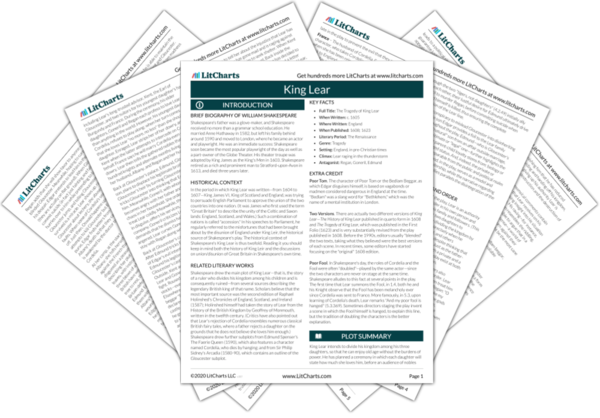Lear's vicious older daughter, who is the first to flatter him in the power-transfer ceremony and the first to insult him afterwards, throwing him and his knights out of her house. Goneril's ruthless temperament contrasts with that of her husband, the Duke of Albany. In the end, she plots against Albany, and even against her former ally, her sister Regan, out of lust for Edmund.
